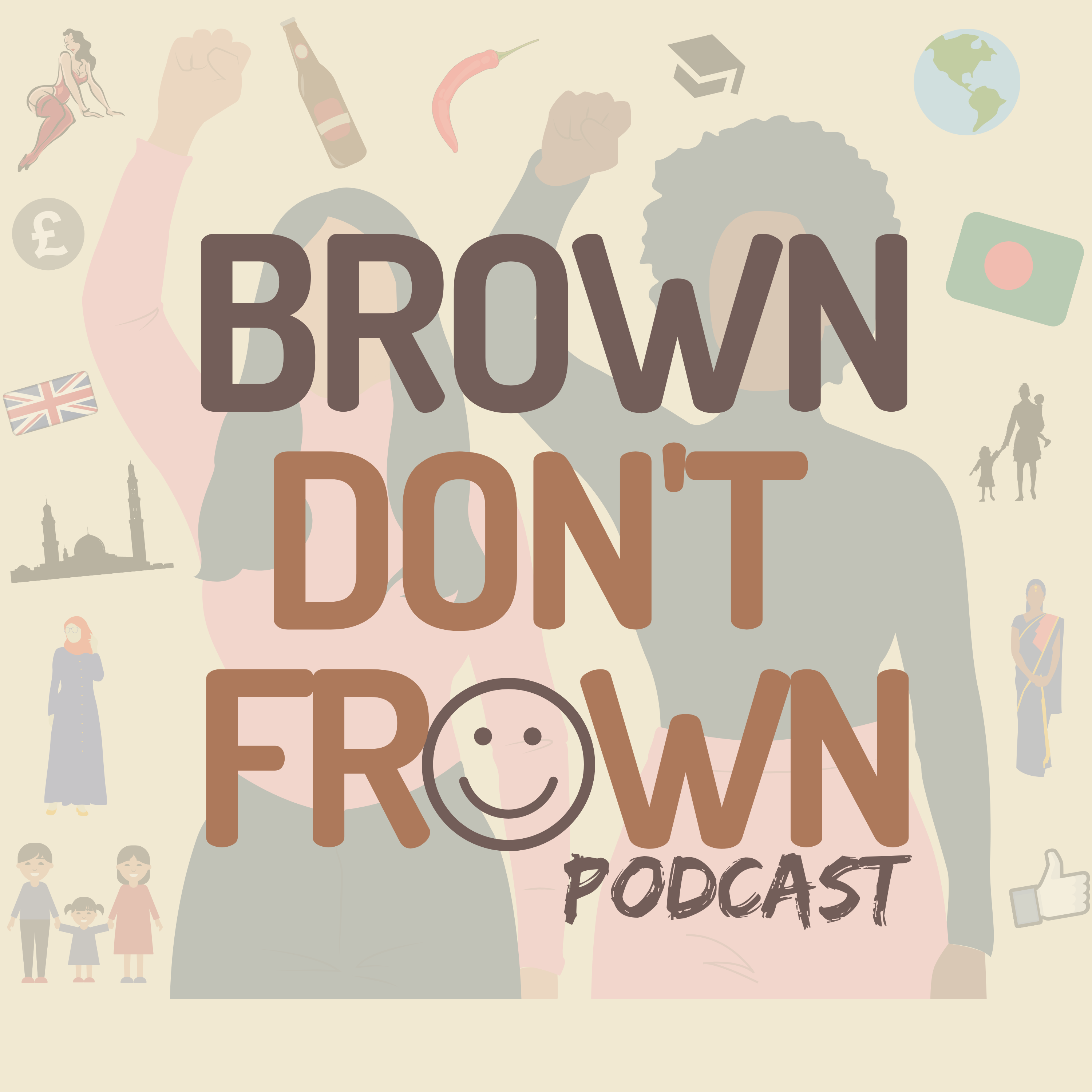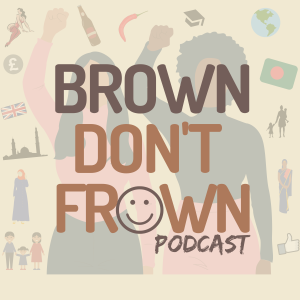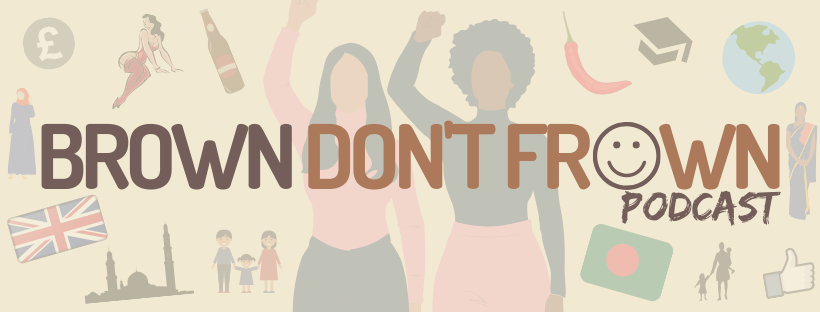
Brown Don't Frown was borne out of a personal journey with womanhood. As a British Bangladeshi, navigating mainstream Feminism often felt exclusionary to me because it didn’t seem to value the experiences or views which shaped my grandmother’s, aunts’, mother’s or friends’ lives. Through this podcast, we seek to build a more inclusive discourse, which breaks down presumptions about different cultures, and shines a positive light on the stories of underrepresented women. Featuring new guest(s) from different walks of life in each episode, Brown Don’t Frown seeks to engage ordinary women and facilitate openness towards entirely new perspectives. It hopes to spark honest and meaningful conversations about intersectional feminist themes in contemporary society with the acknowledgement that our views are shaped by our cultural, racial, religious, social and political experiences. Whether it's discussing society's preconceptions about the Hijab with a British-born Jamaican Muslim woman or examining the impact of gendered expectations on our ability to grieve on our own terms, we hope listeners finish each episode feeling more rounded than they did before. Follow us on: Instagram: https://www.instagram.com/browndontfrownpodcast/ Twitter: https://twitter.com/bdfpodcast?lang=en Facebook: https://www.facebook.com/browndontfrownpodcast LinkedIn: https://www.linkedin.com/company/browndontfrownpodcast
Episodes

Monday May 03, 2021
Monday May 03, 2021
Season 4 kicks off with Shalina Patel, an award-winning history teacher and co-founder of The History Corridor on Instagram. Shalina tells us about her career journey and what motivated her to become a history teacher. We talk about the tendency to be tokenistic when it comes to teaching diverse history, for example a gloss over the Windrush Generation or the glorification of the British Empire, without much reflection of the consequences of exploitation and racism. The relevance of these isolated stories is then buried within the broader curriculum. So I ask, how do we create spaces for important stories to be told, and, is the current teaching curriculum compatible with diverse storytelling?
Shalina shares some advice on how teachers can embed intersectionality into their teaching curriculums and widen their pupils’ perspectives. Social media is saturated with facts, opinions, controversies and conspiracies, which can confound the truth. It might mean that children and young people are misguided about what they read and understand, which can be particularly dangerous because they lack the foresight and intuition that comes with age and experience when distinguishing fact from fiction. Within that context, we discuss how teachers can uphold integrity and objectivity when it comes to teaching history.
I also ask Shalina what discovery of the past has surprised her the most, what it means to her to be a feminist, and what particular intersectional, feminist piece of history inspires her.
You can follow the History Corridor on Instagram: @thehistorycorridor and you can find out more about Shalina here.
To stay updated on the latest news, podcast episodes and exclusives, you can sign up to the BDF newsletter here.

No comments yet. Be the first to say something!